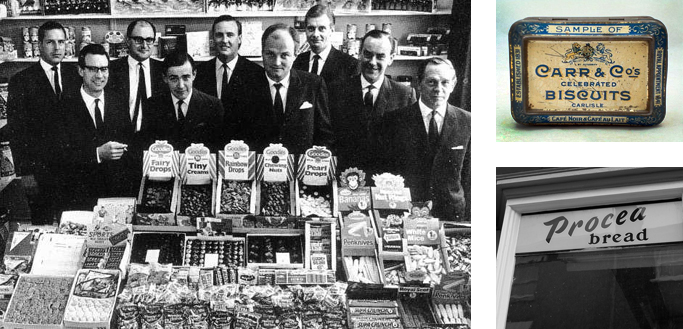Following his first food-related investment in 1963, in slimming products company Protea whose signature product was a low-calorie bread called Slimcea, Sir James set up a private company: Cavenham Foods. Named after his father Frank’s Suffolk estate, Cavenham began acquiring a range of small food companies including chocolate makers Carsons, which then acquired confectionary company Yeatman, and the remainder of Procea. These purchases more than trebled Carson’s size within months of Sir James taking control.
Further acquisitions followed that summer: biscuit company Carr & Co, and an old family confectionary group, Holland. At the start of 1965, Sir James’s group of confectionary companies employed 6000 people, with a turnover of £30m and net assets of about £7m – but zero profits.

These businesses were then consolidated to sit under the single holding company Cavenham Foods, which continued buying up small and badly-run companies, including shares in one of Jim Slater’s companies, Singleton and Cole.
“I went out to get the best people I could find, and I managed to get them”
Sir James later admitted almost every one of his original plans to make these businesses profitable, laid out in the 1965 Cavenham annual report, were wrong. He now learned one of the lessons that would become a key cornerstone of his business and political beliefs – that centralised control of the business units did not work. He quickly made new plans, devolving control to and incentivising managers, and eventually found the right techniques and people to make the businesses profitable.
Business was difficult thanks to tight cashflow and a steep downturn in the British economy, but by 1968 Cavenham had turned around and was making real profits. Sir James anticipated a stock market boom, and with money coming in, he started another spate of takeovers.
